Finding the best shrubs for Hardiness Zone 6 was not as easy as I thought. Some require lots of care, others don’t survive extreme weather, and lots are just not easy & quick enough to grow.
That’s why I created a list of the 10 Best Shrubs for Hardiness Zone 6!
This ultimate guide will give you the best shrubs to plant, why you should grow them, and even how to plant them.
10 Best Shrubs to Plant in Hardiness Zone 6
#1. Hydrangeas
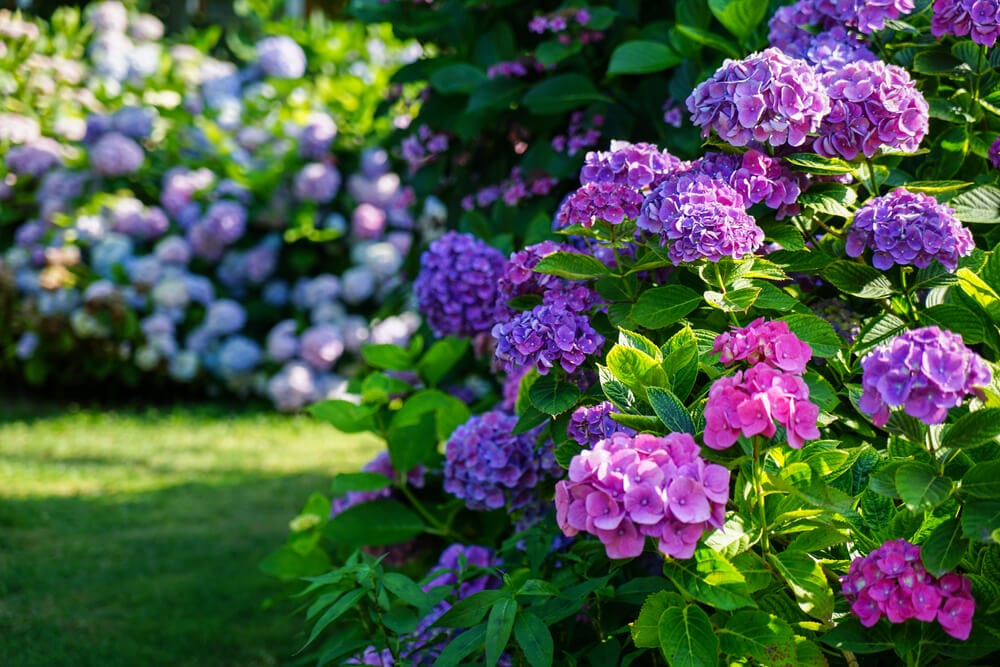
Popular Varieties: Limelight, Quick Fire, Pinky Winky, Panicle
Why Grow Hydrangeas in Hardiness Zone 6?
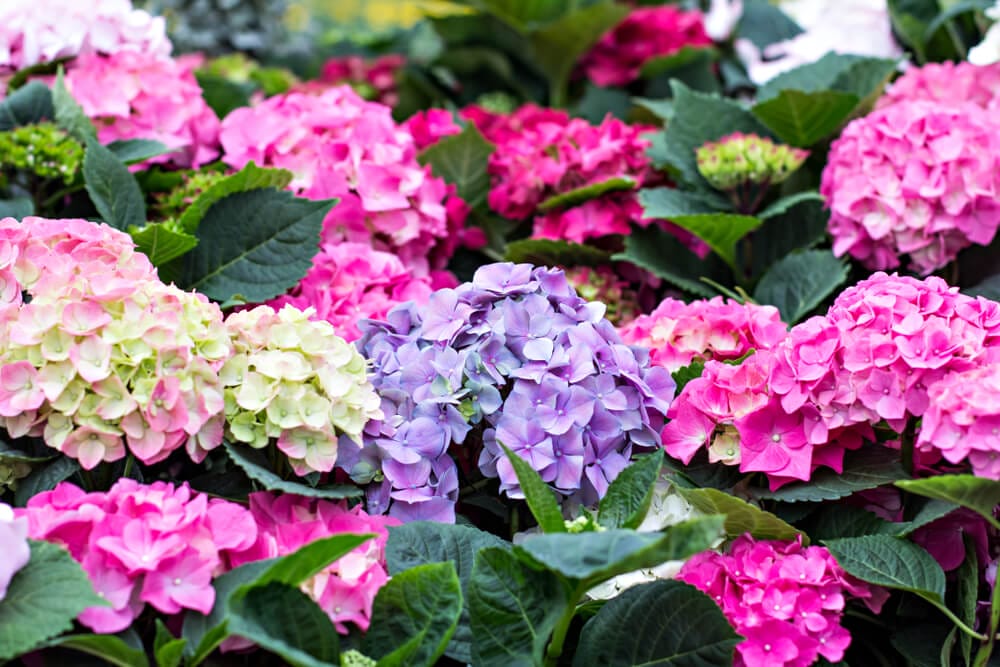
Fast-Growing:
- If you have large spaces in your yard that you need to fill then grow hydrangeas. This shrub is an incredibly fast growing plant that can quickly gain 3-4 feet in width and height in a matter of just a few years.
Borders:
- The hydrangea shrub is one of the best plants to add as a border to your yard or garden. In addition, it can serve as a great focal point in flower beds too.
Beautiful Colors:
- If you want to add color in both the summer and the fall then grow hydrangeas. Expect beautiful shades of pink, blue, white, light green, and red throughout the summer and even early fall.
THESE Could Harm Your Hydrangea Shrubs
Heat:
- Hydrangea shrubs thrive in partial shade, moist-soil, and rainy climates. They can become stunted, have droopy leaves, not produce flowers, and even die if expose to long periods of extreme heat.
Sunlight:
- Like sunlight, hydrangeas can become stunted, not produce flowers, and have bleached flowers if exposed to more than partial sunlight. It is best to plant this shrub in an area of your year that receives only sun for half the day.
Additional Resources
One of the best ways to help your hydrangea grow and have beautiful blooms for years is to apply fertilizer. But applying fertilizer is tricker than it seems. Check out this article to learn about the BEST fertilizers for your specific hydrangea.
#2. Azaleas
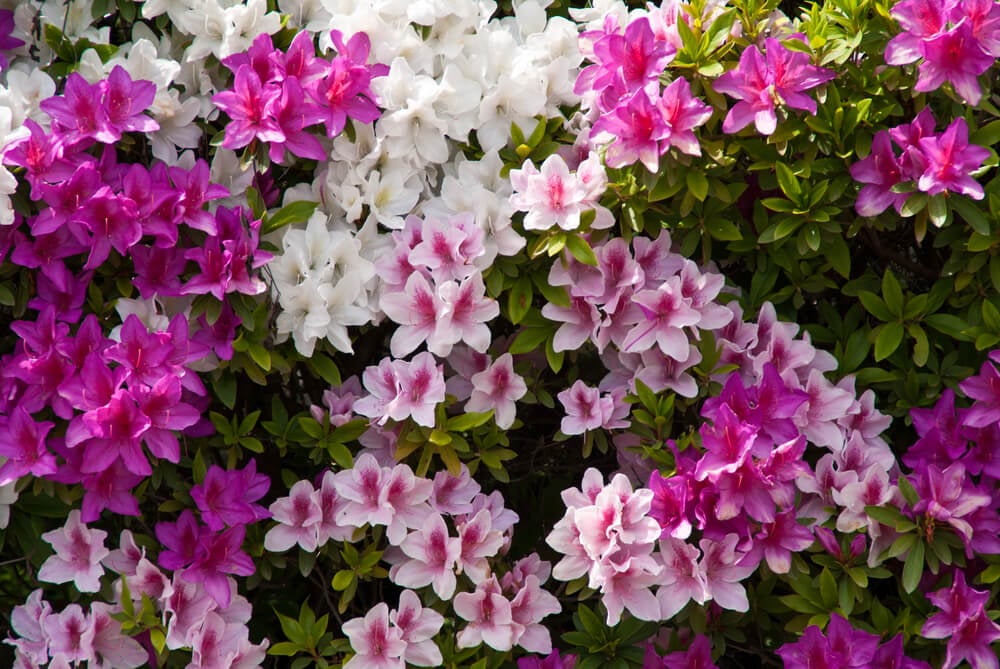
Popular Varieties: Rosy Light, Coastal, Sweet, Western
Why Grow Azaleas in Hardiness Zone 6?
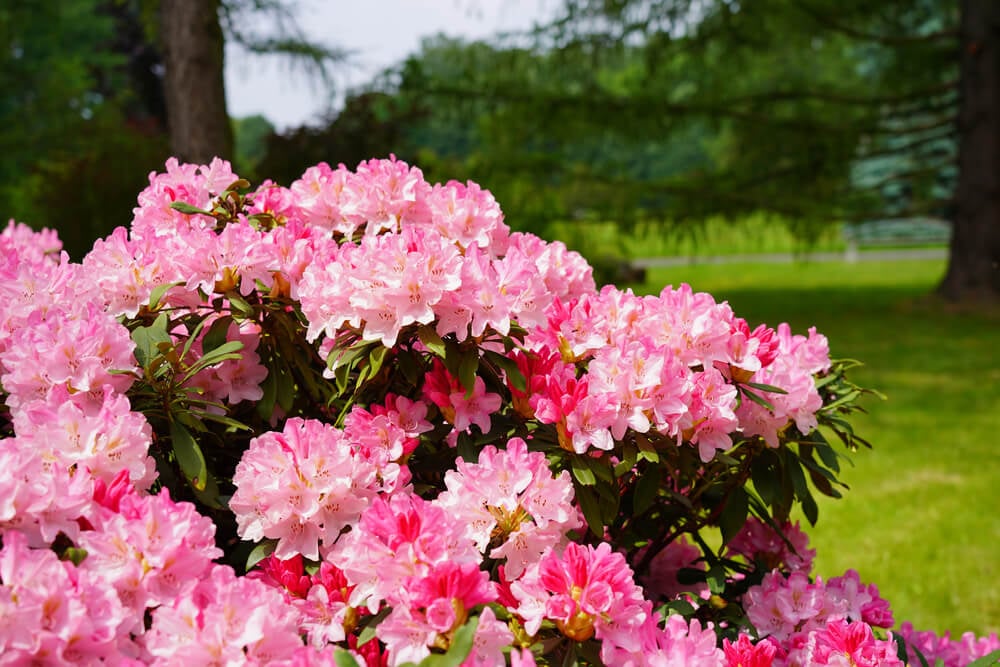
Pest-Resistant:
- The problem with growing flowers plants is that pests like deer and rabbits like to eat them. Fortunately, Azaleas are pest-resistant. Unless desperate, deer and rabbit will not eat or destroy this shrub.
Beautiful Colors:
- Like hydrangeas, Azaleas produce beautiful flowers that bloom throughout spring, summer, and sometimes even fall. The colors can add lovely shades of white, yellow, pink, and even orange!
THESE Could Harm Your Azalea Shrubs
Wind
- Azaleas do not handle weather as well as some of the other shrubs on this list. One weather element that can affect the growth and appearance of your azalea is wind. Plant your shrub in an area of your yard or garden that will be protected from wind and long periods of drought.
Extreme Cold
- Azaleas require the perfect conditions to grow and thrive. Do not plant this shrubs if you get long periods of extreme cold. If you do get periods of cold in the single digits or sub-zero then you should wrap your shrub in burlap.
Additional Resources
For the best success in growing Azaleas you should plant them in an area of your yard that is protected against wind, full-sun, long periods of drought, and extremely wet soil.
#3. Spirea
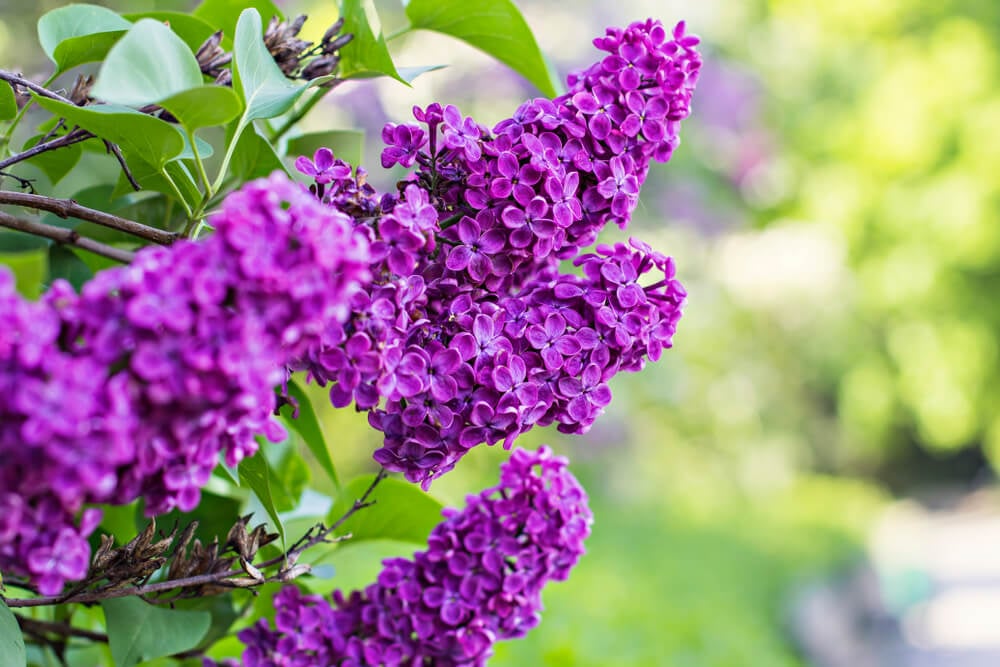
Popular Varieties: Korean, Birchleaf, Bridal Wreath
Why Grow Spirea in Hardiness Zone 6?
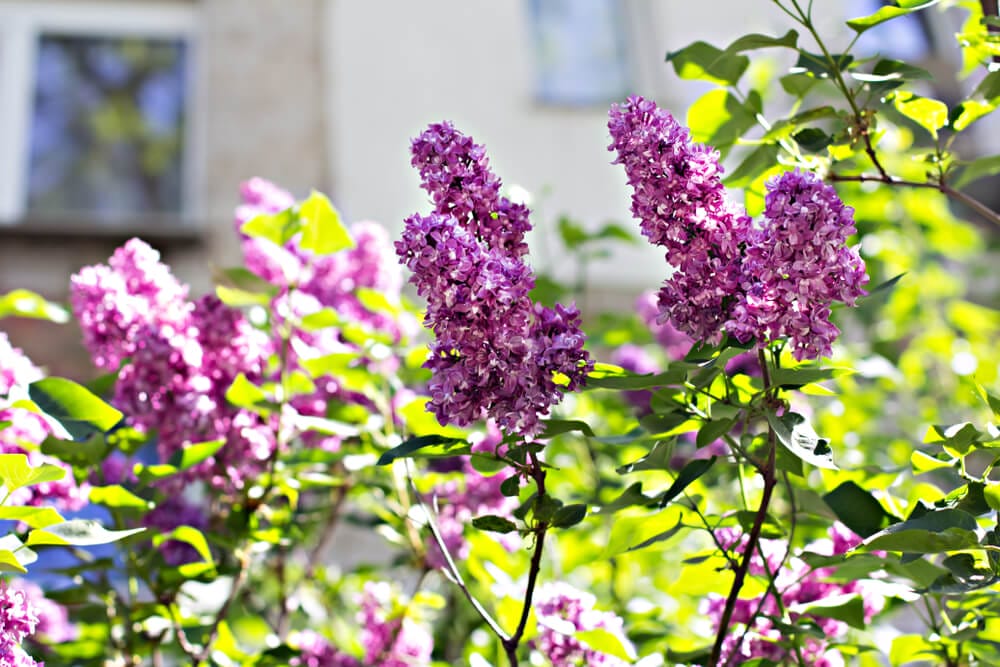
Perfect for Small Spaces & Large Spaces:
- Very few shrubs on this list can be grown in both small spaces and large spaces. The Spirea bush comes in many varities and can be the perfect plant to grow in areas of 2 feet or less, or large areas of up to 10 feet.
Spring Color:
- Most of the shrubs on this list produce colors during mid-summer to mid-fall. The spirea is a great shrub for anyone wants to add beautiful colors and accents to your yard and garden in the spring.
Low-Maintenance:
- The Spirea shrub is the lowest-maintenance plant on this list. It doesn’t require deadheading, is not prone to insect infestations or diseases, and requires very little water, and can survive heat and full-sun.
THESE Could Harm Your Spirea Shrubs
Insects:
- Most shrubs on this list are hardy against disease and insects. Spirea bushes though can fall victim to aphids and mites, especially when they are young or sick.
Additional Resources
Spirea blooms are the longest-lasting blooms on this list. The versatility of this shrub makes it the most popular shrub too. It is perfect as a perennial border, groundcover, and hedges.
#4. Viburnums
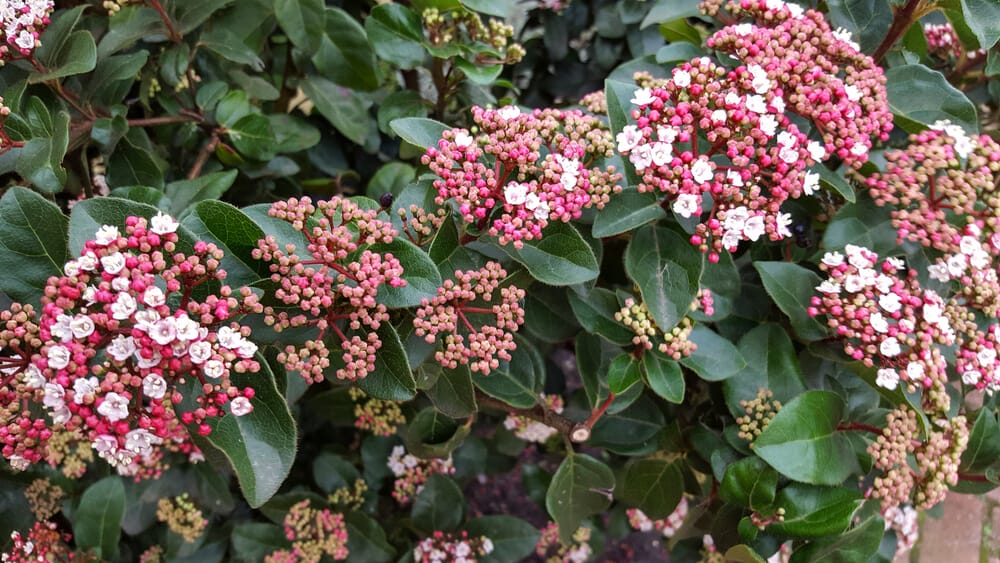
Popular Varieties: Davidil, Opulus, Fordiae, Tinus
Why Grow Viburnum Shrubs in Hardiness Zone 6?
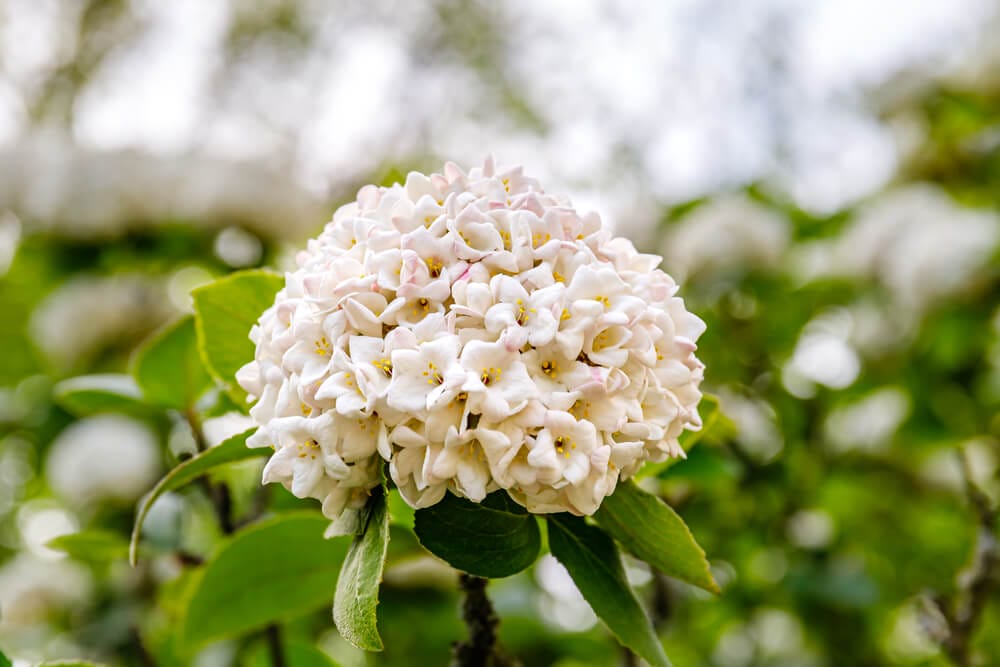
Low-Maitenance:
- Viburnum Shrubs are the most hardy shrubs on this list. They are incredibly hardy making them easy to care for. You can plant them almost anywhere, you don’t need to worry about watering them all the time, and can survive almost all types of weather.
Pest-Hardy:
- Not only are Viburnums hardy against weather, but they are pest-hardy too. No matter where you live there are little to no pests that will harm your shrubs.
All-Year Color:
- Viburnum shrubs are also the only shrub on the list that provides beautiful colors all year. During spring and summer the shrub has beautiful flowers that bloom and in the fall and even early winter it grows fruit that will provide lovely colors when all other plants won’t.
THESE Could Harm Your Viburnums
Old Age:
- When it comes to Viburnum shrubs there is very few if any things that can harm your shrubs. Old age is typically the only thing you have to worry about. When your viburnum shrubs gets older it is best to dig it up and dispose of it.
Additional Resources
Viburnum shrubs not only offer beautiful colors and are hardy, but are perfect for privacy, small spaces, and almost anywhere else you can think about in your yard.
#5. Butterfly Bush
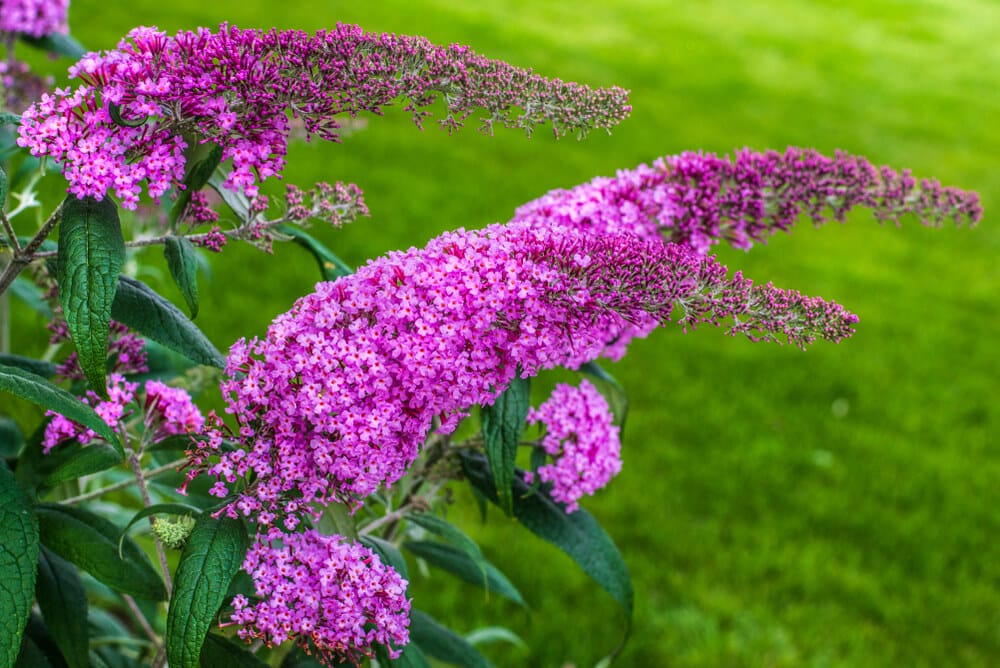
Popular Varieties: Fountain, Globosa, Lochinch, Saligna
Why Grow Butterfly Bushes in Hardiness Zone 6?
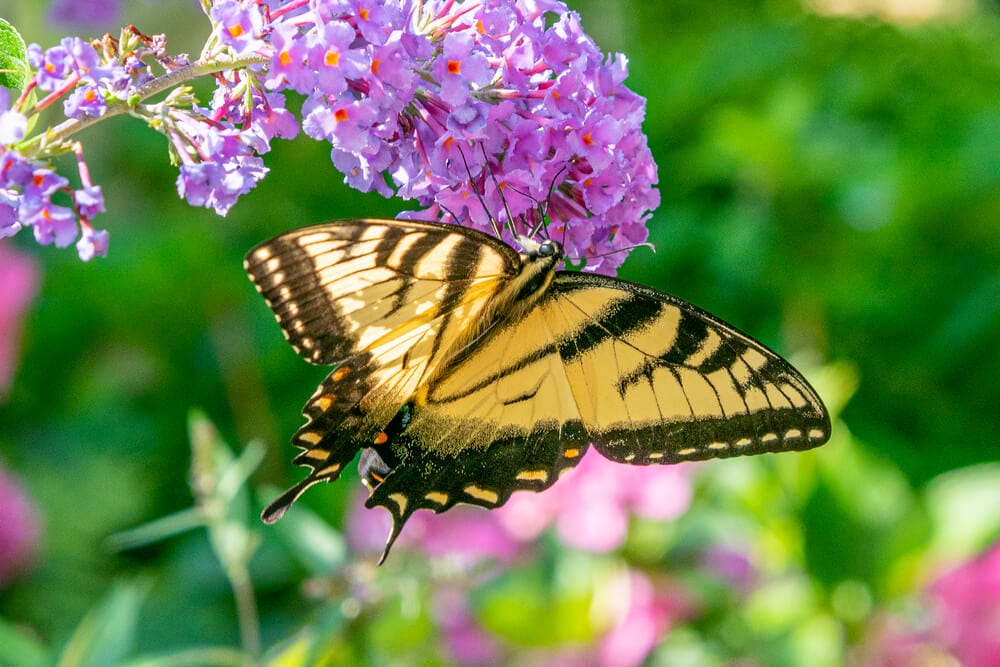
Attract Pollinators:
Out of all the shrubs on this list, the butterfly bush is the best at attracting pollinators. Not only will it attract butterflies, but bees and even hummingbirds will visit it throughout the summer.
Related: 50 Useful Plants that Attract Pollinators
Beautiful Colors & Scent:
- While other shrubs provide beautiful colors they rarely provide amazing scents. The butterfly bush does both. Expecet beautiful colors of pink, white, and red, while having amazing smells fill your yard and garden.
THESE Could Harm Your Butterfly Bushes
Humans:
- Most of the shrubs on this list rarely can become harmed by humans. The butterfly bush though can become harmed when humans don’t prune or care for it and more times than not overprune it!
Weather:
- Butterfly bushes are some of the least hardy shrubs on this list. They can become prone to disease in their early years, need to be covered if exposed to long periods of cold or wind, and often become victim to pests.
Additional Resources
While butterfly bushes are beautiful to grow it should be noted that you will attract a lot of pollinators. Because pollinators will become addicted to the nectar and will not visit other native plants make sure to provide them with housing and water too!
#6. Honeysuckle Bush
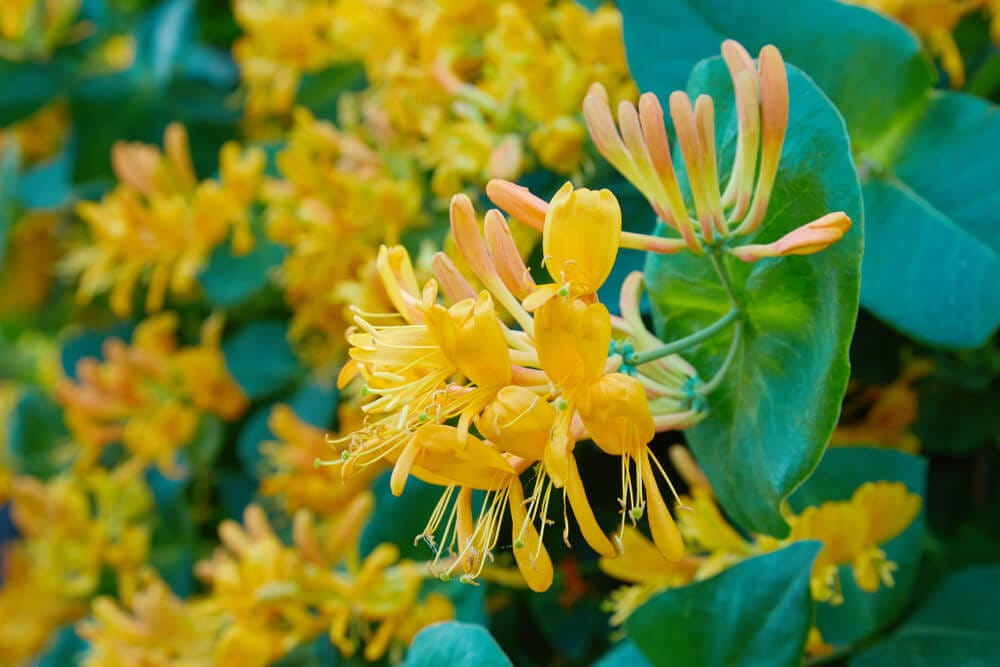
Popular Varieties: Tartarian, Standish, Pretty, Morrow
Why Grow Honeysuckle Bush in Hardiness Zone 6?
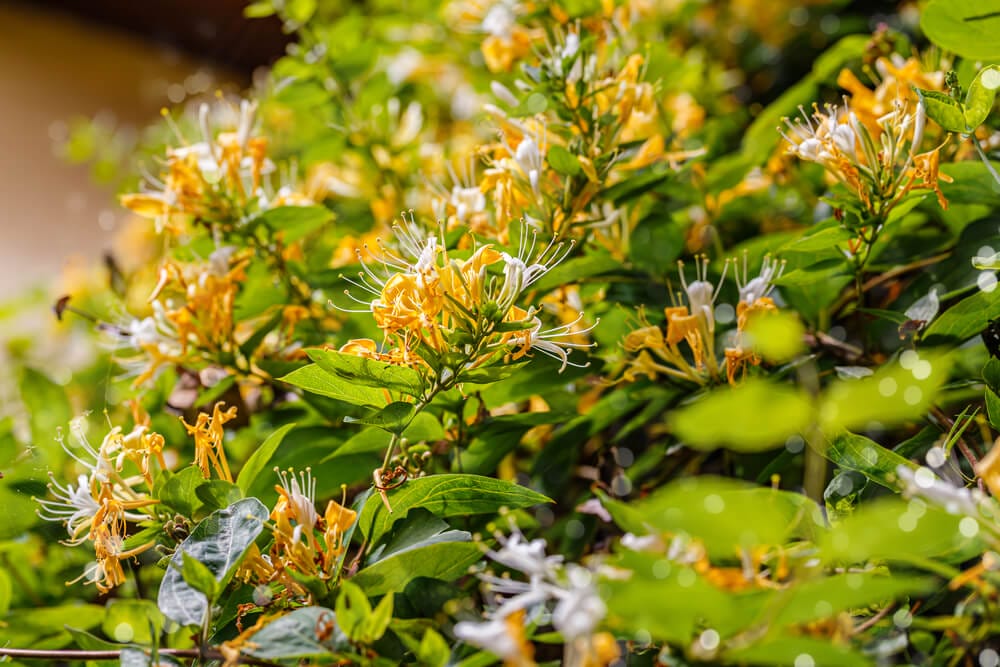
Fast-Growing:
- If you want a fast-growing shrub then plant Honeysuckle Bush. This shrub is not only fast-growing, but incredibly easy to grow. Just plant it and watch it spread like a weed!
Beautiful Colors:
- When gardeners think of shrubs they think of boring plants. Not honeysuckle! Expect beautiful colors of yellow and orange in the summer and during fall when plants’ colors begin to change.
Attract Pollinators:
- Honeysuckle bushes are another great shrubs to attract pollinators. Specifically, hummingbirds and birds LOVE the nectar produced by honeysuckle!
Related: 44 Ways to Attract Hummingbirds
THESE Could Harm Your Honeysuckle Bush
Garden Pests:
- Most shrubs on this list are plants that garden pests don’t eat or like. Sadly, honeysuckle bushes are some of the favorite plants of deer and even rabbits when they grow.
Additional Resources
Honeysuckle bushes are not the invasive Honeysuckle that most gardeners know. With that being said, honeysuckle bushes still grow large and should be planted in an area of your yard that has room for it to grow.
#7. Holly
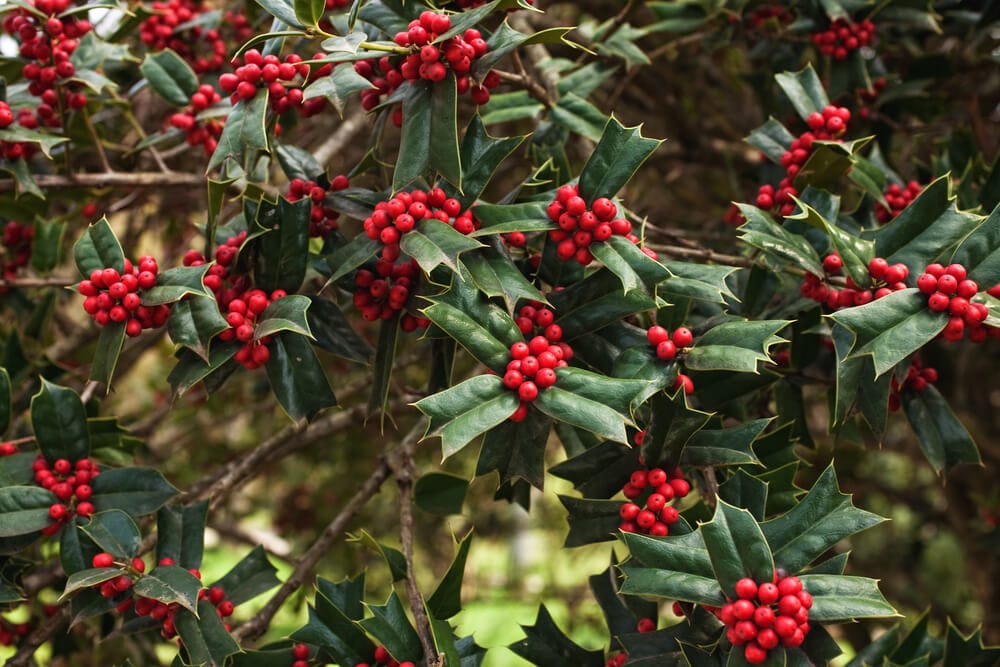
Popular Varieties: Inkberry, Carolina, English, Japanese
Why Grow Holly in Hardiness Zone 6?
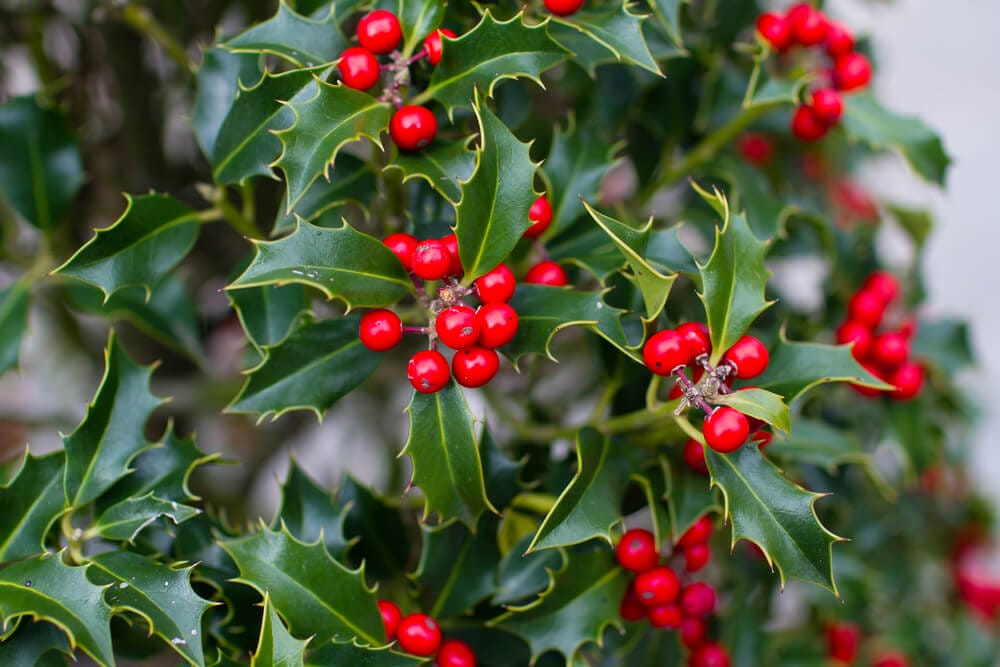
Low-Maitenance:
- Plant it and forget about it should be the motto of Holly. Holly shrubs are some of the most low-maitenance plants on this list making it perfect for busy gardeners no matter where you live.
Foundational Plant:
- Holly is a fantastic shrub to be plant for homeowners and property owners. It is the perfect shrub for foundations, garden beds, raised garden beds, and even borders.
THESE Could Harm Your Holly
Garden Pests
- Holly is another shrub that deer like. Actually, they love it. Make sure to fence in your holly bush or apply a deer spray to keep them away from your shrub when it begins growing.
Additional Resources
If you want to grow a shrub that is also useful then look no further than Holly! Many types of Holly can be harvested during the winter for holiday and Christmas decorations!
#8. Lilac Bush
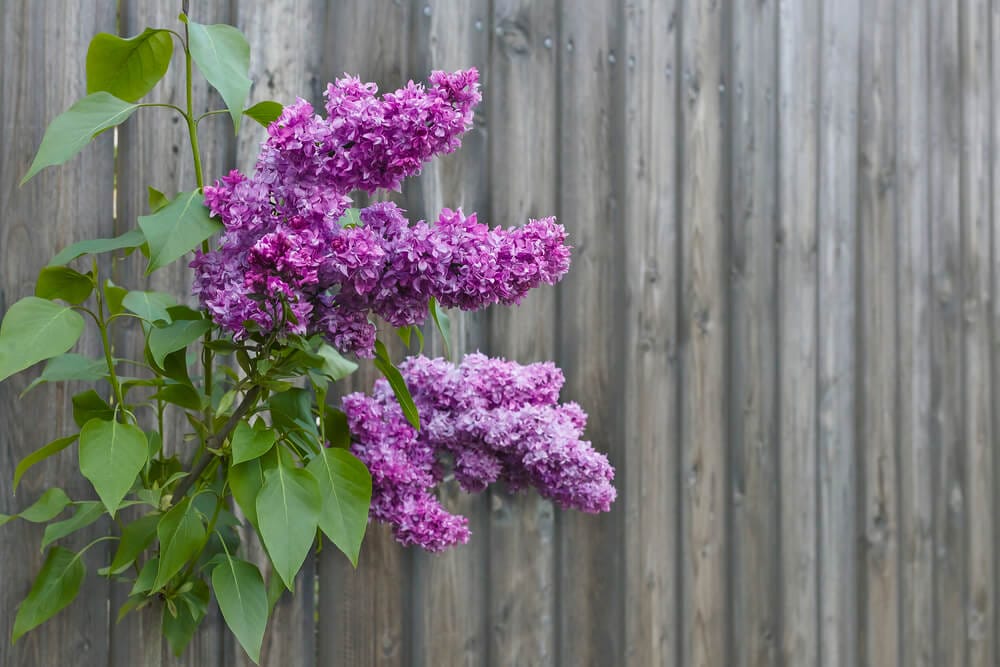
Popular Varieties: Common, Persian, Chinese
Why Grow Lilac Bushes in Hardiness Zone 6?
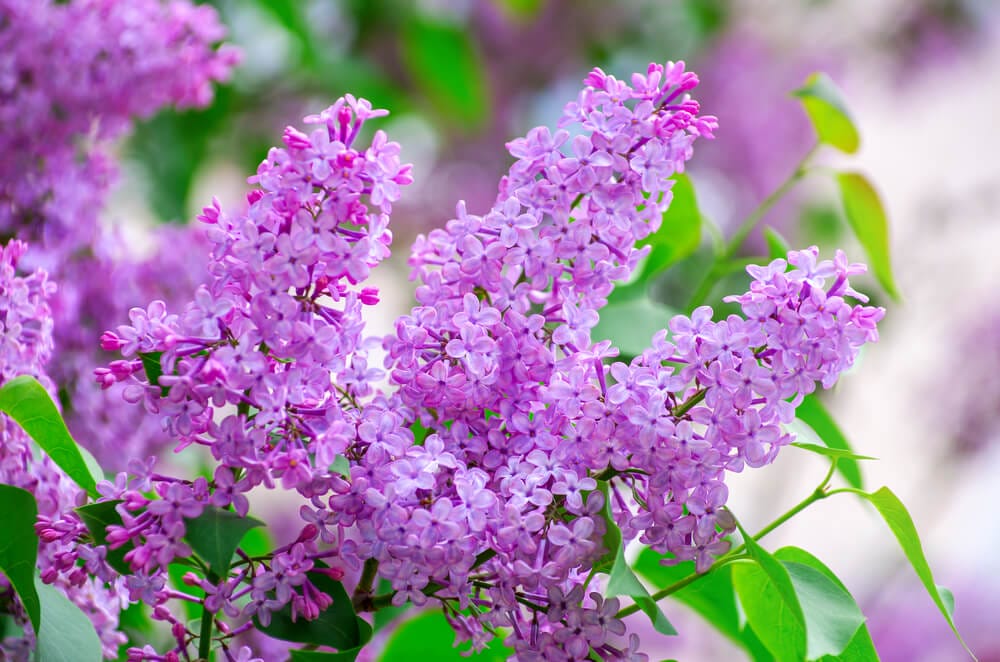
Ornamental:
- Out of every tree on this list the Lilac Bush is the best ornamental shrub. It has beautiful shades of purple and pink, even in the fall.
Great for Large Spaces:
- Lilac bushes can grow wide and wall. Most gardeners can’t actually tell the difference between lilac bushes and trees! Not only this, but you’ll love the smell that it will add to your yard.
THESE Could Harm Your Lilac Bush
Insects:
- Like some bushes and a lot of trees Lilac Bushes are prone to insect attacks. While lilac bushes can die from numerous insect attacks the main ones you have to worry about is the Japanese Beetle, aphids, and mites.
Additional Resources
Lilac bushes are the best type of shrubs to plant in any condition, anywhere in your yard. They thrive in the sun, wet soil, compact or poor soil, cold weather, warm weather, etc.
#9. Sumac
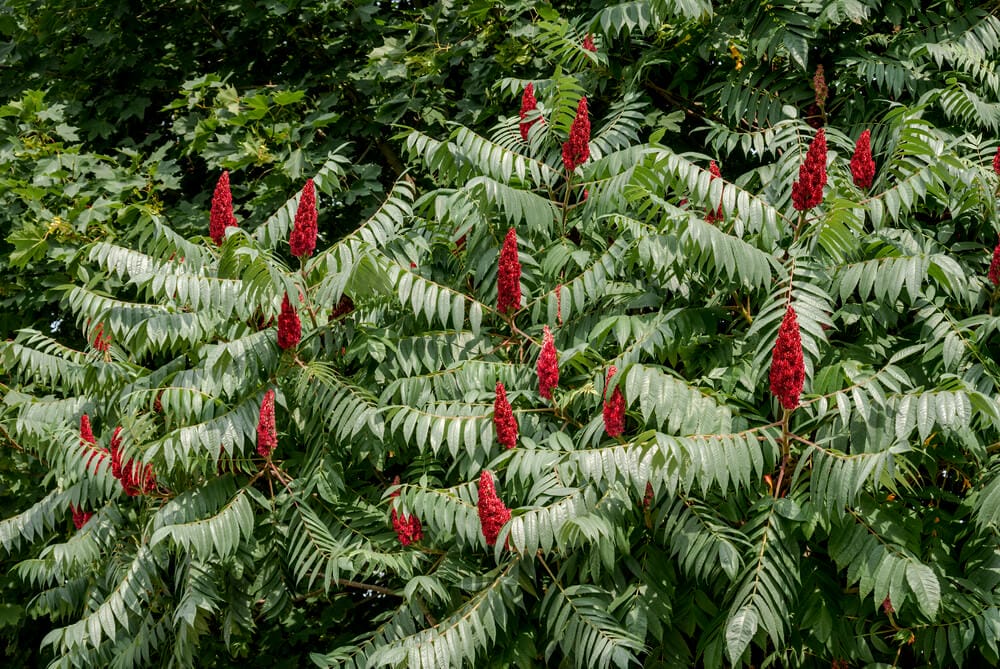
Popular Varieties: Smooth, Staghorn
Why Grow Sumac in Hardiness Zone 6?
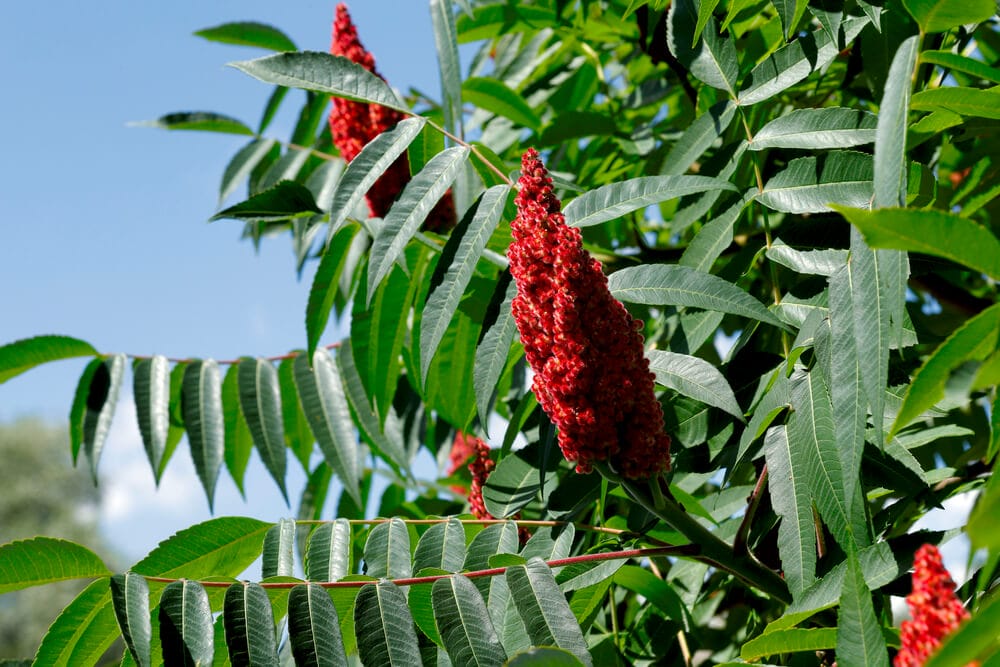
Perfect for Landscaping
- Sumac shrubs is the the best type of shrub on the list for landscaping. Whether you are trying to add shapes and designs in your front yard or backyard this is the perfect plant!
Wildlife Habitat:
- Some shrubs make good habitats for wildlife. There is no better habitat for wildlife than the Sumac bush. It is great for beneficial insects, rabbits, squirrels, chipmunks, and sometimes even baby deer!
THESE Could Harm Your Sumac
Humans:
- When most humans hear Sumac they think it is poisonous or could cause an allergic reaction. Because of these, gardeners sometimes mistakenly destroy non-harmful sumac shrubs!
Additional Resources
Sumac shrubs are considered a native plant to most hardiness zones. If you want to help your yard thrive, attract wildlife, and prevent weeds and invasive species then grow Sumac.
#10. Juniper Bush
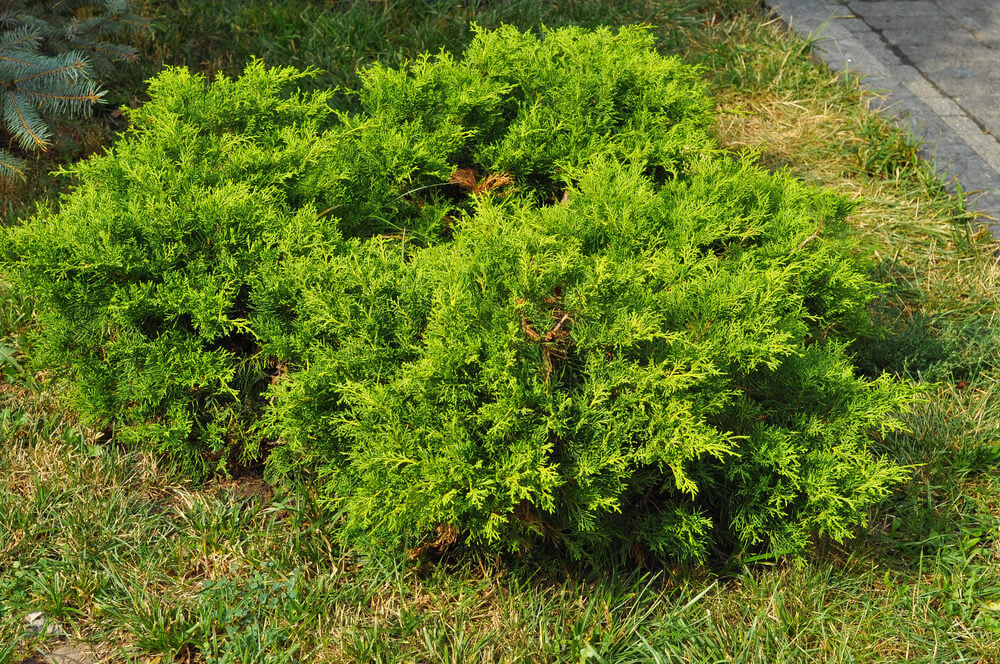
Popular Varieties: California, Chinese, Common, Creeping
Why Grow Juniper in Hardiness Zone 6?
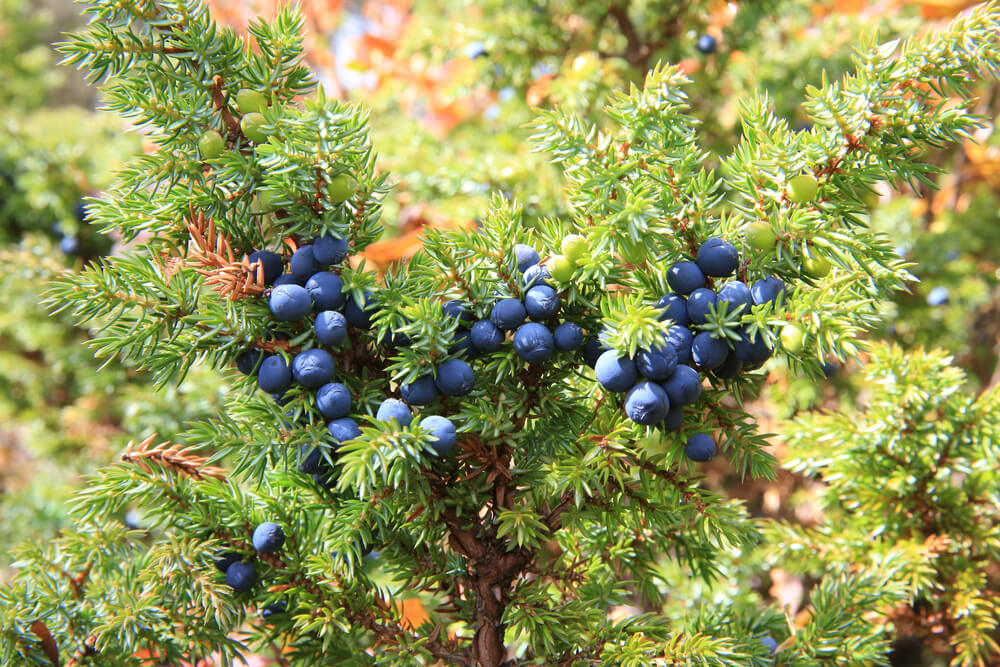
Low-Maintenance:
- The Juniper bush is another amazing shrub to grow if you want a plant that is easy to grow and easy to maintain. This plant does great in heat and in cold weather climates.
Inexpensive:
- Out of all the shrubs on this list the Juniper bush is the most inexpensive to buy. Because of this most gardeners and homeowners do mass plantings to setup foundations in their yard.
THESE Could Harm Your Juniper
Over Pruning:
Even though Juniper Shrubs are incredibly hardy there is one item that can kill them. If you over prune your Juniper Shrub it can turn brown, needles will wilt, and potentially even die.
Additional Resources
If you want to add and maintain color in the winter then grow Juniper Shrubs. This plant is one of the few shrubs that keeps its colors constant throughout the entire year.
Common Growing Factors of Hardiness Zone 6’s Best Shrubs
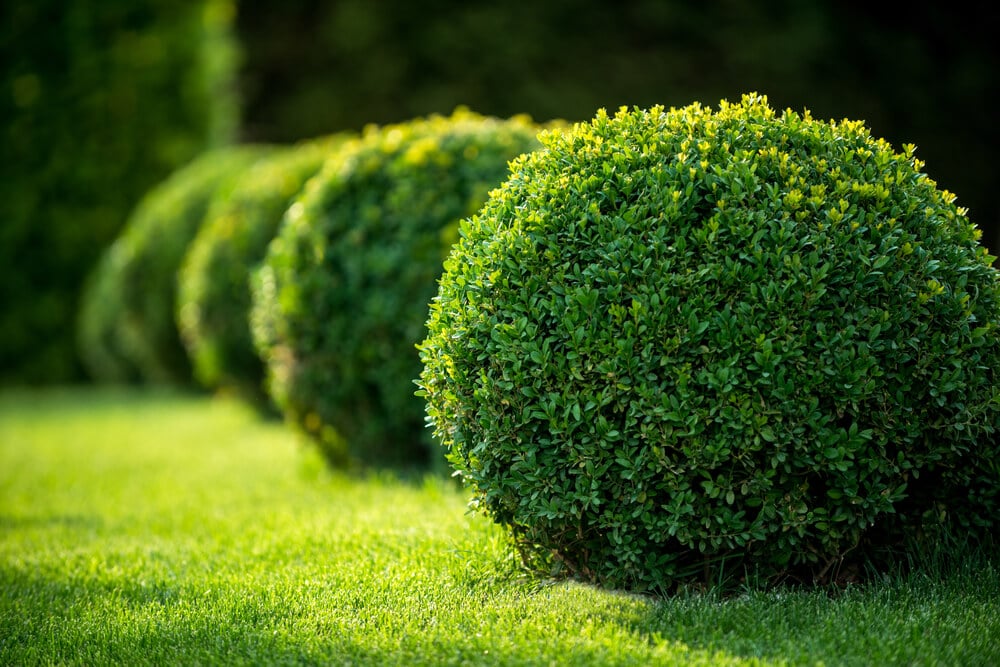
As a reminder, the below factors are common for the Best Shrubs to Plant in Hardiness Zone 6:
- Thrives in Heat & Cold
- Can Grow in Any Soil and Conditions
- Hardy against Pests, Insects, and Diseases
- Have beautiful colors throughout the entire year
- Fits in any space
